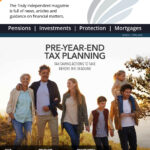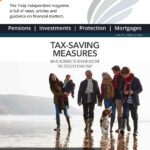Adults expect their financial wellbeing to worsen throughout the course of 2021, whereas there is some optimism of improvements to other wellbeing indicators, such as mental, social and physical wellbeing, once the vaccination is successfully rolled out.
Research tracking attitudes throughout the coronavirus (COVID-19) pandemic shows that adults are pessimistic about improvements to their financial wellbeing during 2021. Nearly 3 in 10 (28%) expect their financial wellbeing to worsen. The vast majority of adults (84%) also remain concerned about the future of the economy as a whole [1].
Financial wellbeing is a key aspect of our overall wellbeing and affects our ability to respond to financial unpredictability, meet financial goals and make choices that allow us to enjoy life.
Other wellbeing indicators show that 19% expect a worsening in social wellbeing, 18% expect a worsening in mental wellbeing and 17% expect a worsening in their physical wellbeing. However, there is optimism for improvements in these three measures with the continued rollout of the vaccination programme.
The pandemic has led to a worrying divide between the financial ‘haves’ and ‘have nots’ in people’s ability to manage their money – and this is set to get worse. Some have been able to save more as expenditure has reduced, but many others have seen a reduction in income over the last year, placing extreme strain on their finances.
Concerns remain over the impacts of the pandemic on financial wellbeing, particularly over the longer term. as we hopefully emerge from the worst of the health crisis, there are reasons to be optimistic for improvements in some aspects of wellbeing, but financial wellbeing improvements are expected to lag behind and could have lasting consequences on people’s financial plans and resilience.
The pandemic has driven financial advice for income protection and critical illness up by a third [2]. Other findings suggest the COVID-19 pandemic has driven the demand for expert professional financial advice, with a sharp focus on protection and mortgages.
The demand for protection is being brought into focus, with people wanting to put financial safety nets in place for themselves and their families amidst health concerns and economic uncertainty.
With many people anxious about their finances as they face job losses or cuts to household income, concerns about their own health and that of family members are also driving an increased awareness and need for protection.
For more information on your protection options, contact one of our Independent Financial Advisers here.










Follow us